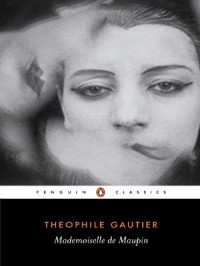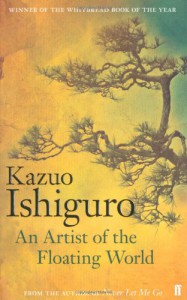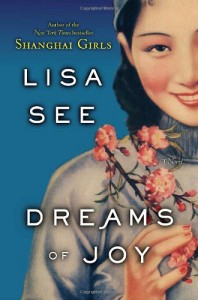
Wow!! Absolutely fantastic! My nerves energized in a euphoric bliss like a girl who found her favourite licorice in a candy store. A peek At 5:15 a.m., her eyes snapped open.She slipped from her soft bed, blinking away sleep and with the practiced ease of three years’ routine, she padded from her room to the master bathroom. Turning on the taps, she felt for the right mix of hot and cold water, then began the ritual of adding the specific mixture of salts that were his favorite. Everything had to be just right. Today was special. His birthday. By 5:30, she had laid out all the tools for his shave along the edge of the marble vanity top. His bathroom reflected his organized, meticulous nature. She loved the warmth of the Italian marble and its soft shades of brown and red. Even the fixtures, simple chrome with graceful lines, mirrored his simple, elegant tastes. She plugged in the electric shaving foam warmer, then checked the tub again. Just this side of scalding. Perfect. She made her way down the stairs in silence, careful to avoid the fifth riser, which made a horrible squeak. She smiled, shaking her head. He always said he would have it fixed, but he never had. He preferred the clean, uncluttered look of hardwood and tile flooring. His master suite had the only carpeting in the house. His sense of style made wandering through the house with bare feet a sensual experience. In the kitchen, she prepared his breakfast tray—orange juice that she squeezed fresh every morning, strong tea, no milk and three sugars, organic almonds and two slices of raisin bread. At 5:45, she stood outside the bedroom door. Balancing the tray with one hand, she raised the other to tap lightly. “Good morning,” he called, still sleepy-voiced but alert. “Come in, little one.” She grinned and pushed open the door. She was almost thirty, perhaps a bit too old to be called little one, but he was so endearing when he said it. He was seated against the mahogany headboard of the king-sized bed that dominated the room. He was surrounded by pillows, the bold pattern of the comforter complementing his smooth, pale skin. She dropped her gaze, before he could see her reaction. He was a gorgeous man—muscled and toned as a marble statue, but the warmth of his gray-blue eyes softened his austere beauty. Nestling the breakfast tray over his lap, she waited for his motion before sitting near his feet. “Do you know what today is?” he asked in between bites. “Your birthday.” He smiled. “And what will you give me for my birthday, apart from this breakfast which is so delicious?” “Anything you desire,” she replied, without hesitation. “Hmmm…” He seemed to consider that statement as he sipped his tea and finished his toast. When he was done, he put the tray on the side table then threw back the covers. She couldn’t help staring from beneath her lashes. After three years together, just looking at him could still make her pulse race. Naked, as he was always in the morning, he made a handsome picture. “Then come here, Isis,” he commanded. “And bring me to life.” She stood and slipped her dressing gown from her shoulders, as comfortable in her nakedness as he. She always thought it sweet and strange that he would call her by a goddess’s name, but what he desired today was all she desired ever, and if there was ever a day to please him—then shouldn’t it be today?She crawled toward him, on hands and knees, over the bed. His cock was already stirring before she drew herself between his legs and slowly dropped her head to taste him. Her tongue darted out from between parted lips to flick over the purpling head, then she slid her mouth over the tip and down the length of his shaft. “That’s right,” he growled. “Suck my cock, get me ready.” His whispers intensified as she worked her mouth up and down his ever-hardening, soon impressive erection. As he lifted his hips against her, she dropped a hand to circle the base of his cock and pumped in rhythm to her mouth’s motions. He moaned, fisted his hands in her hair and pushed his hips hard, fucking her mouth. She pressed her lips tight around his cock, reveling in the sensation of pleasure she felt. His responses always urged her further. She wanted to do more for him, give him more, show him more, to take herself beyond what she’d done before. She felt limitless when she gave pleasure like this. “No,” he groaned. “I don’t want to…not…not yet…too soon.” He pulled her off his cock, then dragged her across his body, lifting her at first by the shoulders, then dropping his hands to cup her ass. “Ride me.” His demand was like a symphony to her ears, but instead of sheathing him inside her already wet cunt, she took her time—prolonging the moment until he squirmed beneath her. “Oh, you slut,” he breathed, his tone taking the sting out of the words. “Get on my cock, now. It’s my birthday and I want to fuck you.” “Like this?” she asked, teasing, as she took him inside, inch by inch, until he squirmed beneath her. “Oh God, yes,” he moaned. She squeezed her inner muscles tight, gripping his cock and milking it with her pussy as though it were her hand. Closing her eyes, she ground her pelvis into his. “No,” he said, breath ragged. “Look at me.” Their gazes locked. “Do you love me?” he asked. “Oh, yes,” she sighed, feeling her orgasm starting to build. “Will you do anything I want?” “Ask, and it’s yours,” she whimpered, urging him to writhe beneath her. “Then fuck me now,” he nearly shouted. “Like it’s the last time, my Isis…like you’ll never have my cock inside your pussy again!” He sounded almost desperate, and it drove her to a place she’d never been with him. All she wanted, all she ever wanted was to make him happy, and she was determined to give him everything he desired. He groaned, forming incoherent words, his movements beneath her jerky and awkward. She threw herself over him, slamming her hips against his, bringing her own release crashing down, just before he shouted her name and thrust up into her one last time. She felt his orgasm like a shot and it exploded throughout her entire body. Long moments passed before either of them moved. He recovered first, shaking himself, and nudging her until she lifted herself off his lap. Staring, she wondered if she looked as dazed as she felt. “That was beautiful, baby,” he said. “You know, it’s times like that when I almost believe you really love me.” “But I do,” she said, protesting the implication. She felt guilt well up in her chest. How could he think she didn’t love him? She hadn’t been perfect, but surely she’d never given him reason to doubt her affection. He stroked her cheek with his knuckles. “I know you do.” He shook himself again and motioned. She got off the bed entirely and slipped into her robe. for the feral minds out there, who speculate my licorice devouring amusement. For disobeying her Master , Sage was sent packing back to Collingwood , a rarity in case of triumphant graduates. She knew she would be punished for being a rebellious submissive, but Gervais who had a soft spot for Sage, decided to use her as a training specimen in his classes. Sage was an idyllic subservient with lustrous skin, curves that surprisingly softened with her ballerina-esque sways and eyes that would pierce through the strictest confrontation. It was not surprising after all, when Derek Riddle picked her as his subject when he enrolled for his Domme “Master” courses. Riddle did not attain the crucial authoritarian behavior of a Domme as he was soft( as per Domme principles) and could be easily manipulated, nevertheless was surely possessive about Sage , a common trait seen in a Master and his subservient. Through various disciplinary training sessions and several sexual maneuvers of astounding orgasms which Sage described as ‘ la petite mort’( a little death) ; Riddle wanted to extend his contract( binding Sage) beyond the aesthetically gothic walls of Collingwood School; only if Master Evan would have made things a bit easier. Evan , another practicing Domme , shared a deep dark secret with Sage unknown to the school authorities. Evan came across as an immoral sadistic face of sexual supremacy which delineated an adverse face of sexual psychosis. Jessica Brandt pens one of the most seductive and spellbinding scripts I have read in the current batch of erotica. The romantic part of the narrations, appreciatively, does not fade the prevailing aura of the BDSM theme which is exploited with utter finesse. I’m quite proud to notify that some of the bondage sessions illustrated, nearly anesthetized my senses and shook me a little. Curling of toes clenching on my skin for their dear life, parched throat and uneasiness in my sitting position were some symptoms, I heroically endured during this particular reading. I believe that if you resist all the sensory signals of your brain while reading this book and carry the mounting anticipation to bed you could make a certain someone extremely happy and alcohol does not even become mandatory. Although this theory is not tested yet, I can knowingly say that through couple caffenine doses and several bottles of chilled water, I endured the reading patiently while resisting my own ‘une petite mort’.
 Sex is everywhere, except in sexuality.( R. Barthes).Eroticism seduces sex into a passionate euphoria ; the games of seduction upstages the terminating biological process. Sex is limited; seduction is limitless performing aesthetic gestural plays of sensual rituals challenging moralistic foundations. Seduction is always more singular and sublime than sex, and it commands the higher price (Baudrillard). Liberation of passion from its didactic shackles, love being embraced with a poetic mirage; the beauty of love in its immoralist exhibit- a virtuous revolt of unattainable love being the ultimate allure. Not that this game is perverse. What is perverse is what perverts the order of the terms; but here there are no longer any terms to pervert, only signs to seduce. (Baudrillard;Seduction). Theophile Gautier’s elaboration of his self-coined phrase,"Art for art’s sake", is a celebration of identifying the splendor of love in it pure form; a bohemian expression of devoted possession that nurture the radicalism in a poet’s despair. Poetry is aesthetically alluring; prose is insipid, clean as water. Dream of love, weep in its agony, clinch its vices and contemplate in its ruins for nothing corrupts like not being loved.Madelaine de Maupin was far from being a virginal bashful maiden. In a self-revolt to the ritualistic regulations of finding an appropriate suitor, she is determined to find more about men and their world by disguising as a man. Her tomboyish persona and an acute swordsmanship help Theodore(Mlle.Maupin) to explore the chivalrous masquerade of men. The impeccable cover up bequeaths Theodore with his first tryst with potential love as Rosette succumbs to his coquettish charm and passionately falls in love with Theodore. Theo, himself (herself) is romantically inclined to Rosette far enough as to take care not to hurt Rosette’s feelings when the love becomes distant. The love exhibited between the two (also later with D’Albert) is truly in its aesthetic form devoid of any sexual encounters. Chastity was the main element among the three characters when they define their respected love. When Maupin (Theodore) can no longer control the events with Rosette in their bedroom, flees leaving Rosette heartbroken with an unfulfilled love. As the novel progresses into a mesh of passions flying all over the corresponding letters, Theodore finds himself being the object of affection of D’Albert. D’Albert is stunned by the fact that his “true” love is man and desires Theodore to be a woman as he cannot fathom his quandary of deciding the legitimacy of his love. How can he love Theodore so fervently and not Rosette who has been his mistress for months? Maupin does not reveal the true identity of Theodore in favor of genuine love not being tarnished by debauchery.Gautier was free thinker who looked up to Victor Hugo and Charles Fourier among other iconoclasts emphasizing that justifying an artistic pursuit unvalued the core of its aesthetics. He flirts with the aspects of bisexuality and gender restriction in this proposal of love delineated through letters written by the characters is par above gender restriction, societal prejudices; purely love in its crude form. Gautier did not corrupt the seductive atmosphere of the plot with sexual tryst or any sort of its elaboration and feted the inspiration of wild pleasures that go beyond physical normalization. The offset of bisexuality in Maupin’s life with her unbridled passion for Rosette was marred with the thought of revealing the uncouth reality. I wonder if Rosette would indulge in Maupin’s sensuality if she knew who the real identity.Although my skepticism take a plunge in the concluding chapter when Rosette and Theodore indulge in their last of wild passion with the maid discovering pearls which Maupin was wearing while clearing out the bed clothes. Or for that matter, D’Albert who insisted on calling Theodore by his theatre name- Rosalind in a bid to save himself from accepting the idea of falling in love with a man. Love captures all, is not what people preach and yet we as a society fail to accept the very aspect of enlightened love by negotiating unwanted gender bias laws. We live in a free world with shackled outlook. Gautier based his heroine (Maupin) in a world where lovers were clandestine in their actions and marriages were more of a formal engagement. Similar to Victor Margueritte’s sketch ofMonique Lerbier; Maupin gives me goose bumps. The very idea of a woman revolting against the societal norm is still very appeasing to me. In a culture where the sacredness of arranged marriages is still preserved and casteism many a times becomes a debating factor in conjugal associations, sexually liberation is veiled under sanctimonious hypocrisy; it’s an elation to interpret such an ardent work of sheer romanticism.Is love virtuous? Fair enough, I believe so. When human emotions integrate within the trance of love, its illusionary beauty penetrates deeper into moralizing vortex of genuine emotions. The heart upstages the eyes; I reckon that must be the sole reason of Theodore vanishing from the lives of Rosette and D’Albert desiring that they share the passion of their love. The life of a lover or a poet may seem rousing to those whose naivety to the melancholic fatigue is reminiscent to a child on a realism threshold. Even though the society has lost of its right to be artless and bashful with its marriage to civilization, there are times when a poem cannot be read solely as a poem for there is a possibility of its artistic consciousness being ruined by the colorless prose of sincere love.
Sex is everywhere, except in sexuality.( R. Barthes).Eroticism seduces sex into a passionate euphoria ; the games of seduction upstages the terminating biological process. Sex is limited; seduction is limitless performing aesthetic gestural plays of sensual rituals challenging moralistic foundations. Seduction is always more singular and sublime than sex, and it commands the higher price (Baudrillard). Liberation of passion from its didactic shackles, love being embraced with a poetic mirage; the beauty of love in its immoralist exhibit- a virtuous revolt of unattainable love being the ultimate allure. Not that this game is perverse. What is perverse is what perverts the order of the terms; but here there are no longer any terms to pervert, only signs to seduce. (Baudrillard;Seduction). Theophile Gautier’s elaboration of his self-coined phrase,"Art for art’s sake", is a celebration of identifying the splendor of love in it pure form; a bohemian expression of devoted possession that nurture the radicalism in a poet’s despair. Poetry is aesthetically alluring; prose is insipid, clean as water. Dream of love, weep in its agony, clinch its vices and contemplate in its ruins for nothing corrupts like not being loved.Madelaine de Maupin was far from being a virginal bashful maiden. In a self-revolt to the ritualistic regulations of finding an appropriate suitor, she is determined to find more about men and their world by disguising as a man. Her tomboyish persona and an acute swordsmanship help Theodore(Mlle.Maupin) to explore the chivalrous masquerade of men. The impeccable cover up bequeaths Theodore with his first tryst with potential love as Rosette succumbs to his coquettish charm and passionately falls in love with Theodore. Theo, himself (herself) is romantically inclined to Rosette far enough as to take care not to hurt Rosette’s feelings when the love becomes distant. The love exhibited between the two (also later with D’Albert) is truly in its aesthetic form devoid of any sexual encounters. Chastity was the main element among the three characters when they define their respected love. When Maupin (Theodore) can no longer control the events with Rosette in their bedroom, flees leaving Rosette heartbroken with an unfulfilled love. As the novel progresses into a mesh of passions flying all over the corresponding letters, Theodore finds himself being the object of affection of D’Albert. D’Albert is stunned by the fact that his “true” love is man and desires Theodore to be a woman as he cannot fathom his quandary of deciding the legitimacy of his love. How can he love Theodore so fervently and not Rosette who has been his mistress for months? Maupin does not reveal the true identity of Theodore in favor of genuine love not being tarnished by debauchery.Gautier was free thinker who looked up to Victor Hugo and Charles Fourier among other iconoclasts emphasizing that justifying an artistic pursuit unvalued the core of its aesthetics. He flirts with the aspects of bisexuality and gender restriction in this proposal of love delineated through letters written by the characters is par above gender restriction, societal prejudices; purely love in its crude form. Gautier did not corrupt the seductive atmosphere of the plot with sexual tryst or any sort of its elaboration and feted the inspiration of wild pleasures that go beyond physical normalization. The offset of bisexuality in Maupin’s life with her unbridled passion for Rosette was marred with the thought of revealing the uncouth reality. I wonder if Rosette would indulge in Maupin’s sensuality if she knew who the real identity.Although my skepticism take a plunge in the concluding chapter when Rosette and Theodore indulge in their last of wild passion with the maid discovering pearls which Maupin was wearing while clearing out the bed clothes. Or for that matter, D’Albert who insisted on calling Theodore by his theatre name- Rosalind in a bid to save himself from accepting the idea of falling in love with a man. Love captures all, is not what people preach and yet we as a society fail to accept the very aspect of enlightened love by negotiating unwanted gender bias laws. We live in a free world with shackled outlook. Gautier based his heroine (Maupin) in a world where lovers were clandestine in their actions and marriages were more of a formal engagement. Similar to Victor Margueritte’s sketch ofMonique Lerbier; Maupin gives me goose bumps. The very idea of a woman revolting against the societal norm is still very appeasing to me. In a culture where the sacredness of arranged marriages is still preserved and casteism many a times becomes a debating factor in conjugal associations, sexually liberation is veiled under sanctimonious hypocrisy; it’s an elation to interpret such an ardent work of sheer romanticism.Is love virtuous? Fair enough, I believe so. When human emotions integrate within the trance of love, its illusionary beauty penetrates deeper into moralizing vortex of genuine emotions. The heart upstages the eyes; I reckon that must be the sole reason of Theodore vanishing from the lives of Rosette and D’Albert desiring that they share the passion of their love. The life of a lover or a poet may seem rousing to those whose naivety to the melancholic fatigue is reminiscent to a child on a realism threshold. Even though the society has lost of its right to be artless and bashful with its marriage to civilization, there are times when a poem cannot be read solely as a poem for there is a possibility of its artistic consciousness being ruined by the colorless prose of sincere love.




























